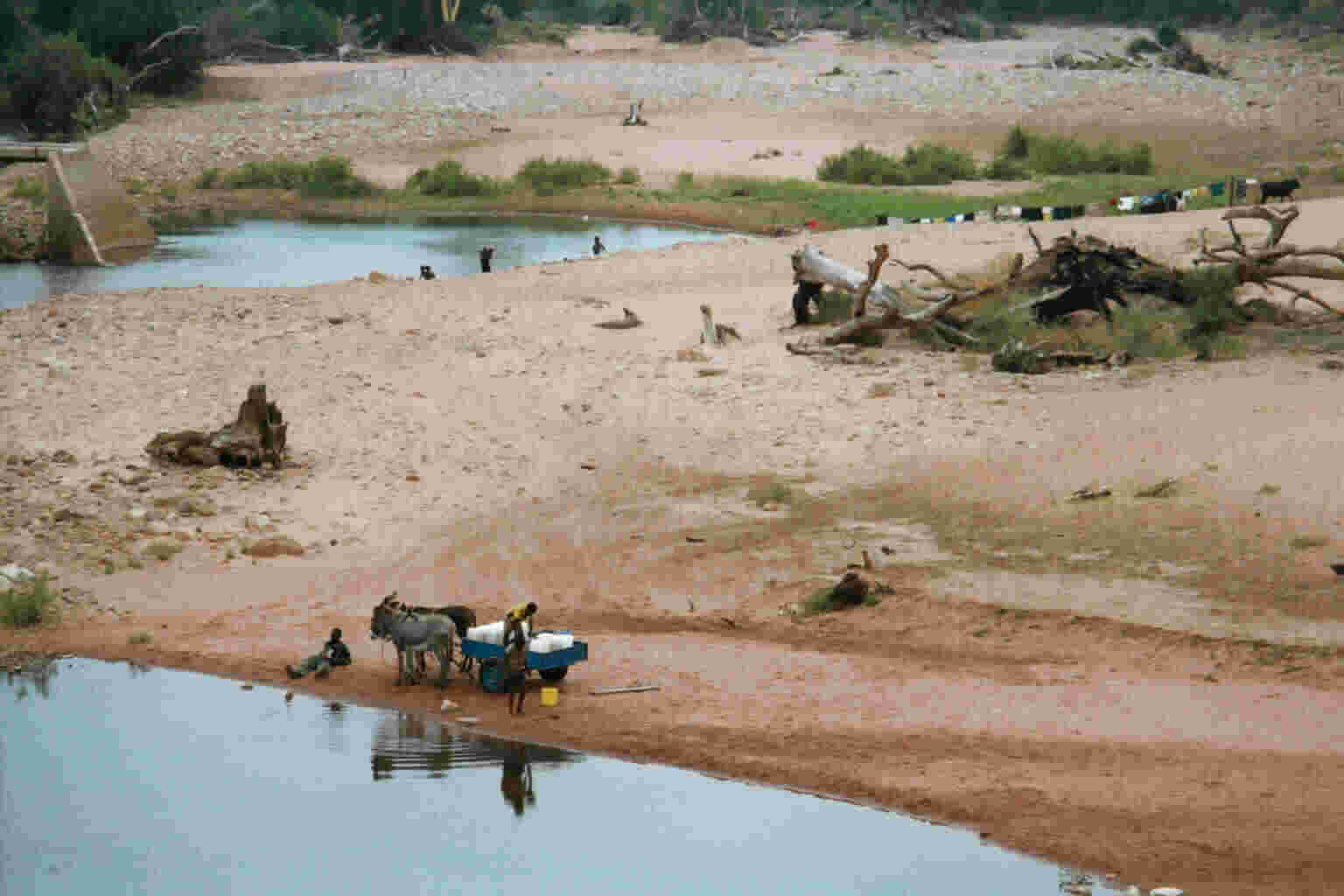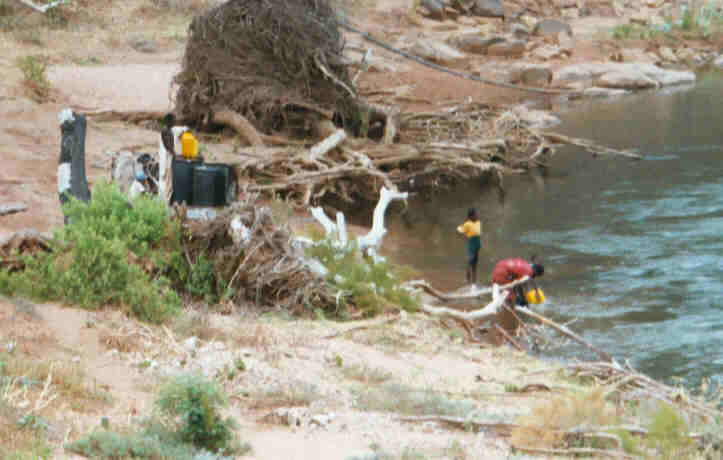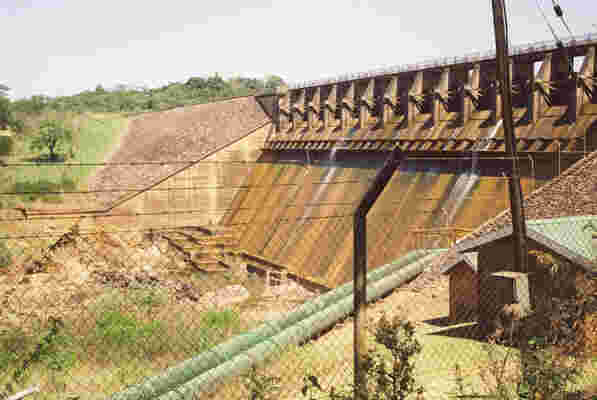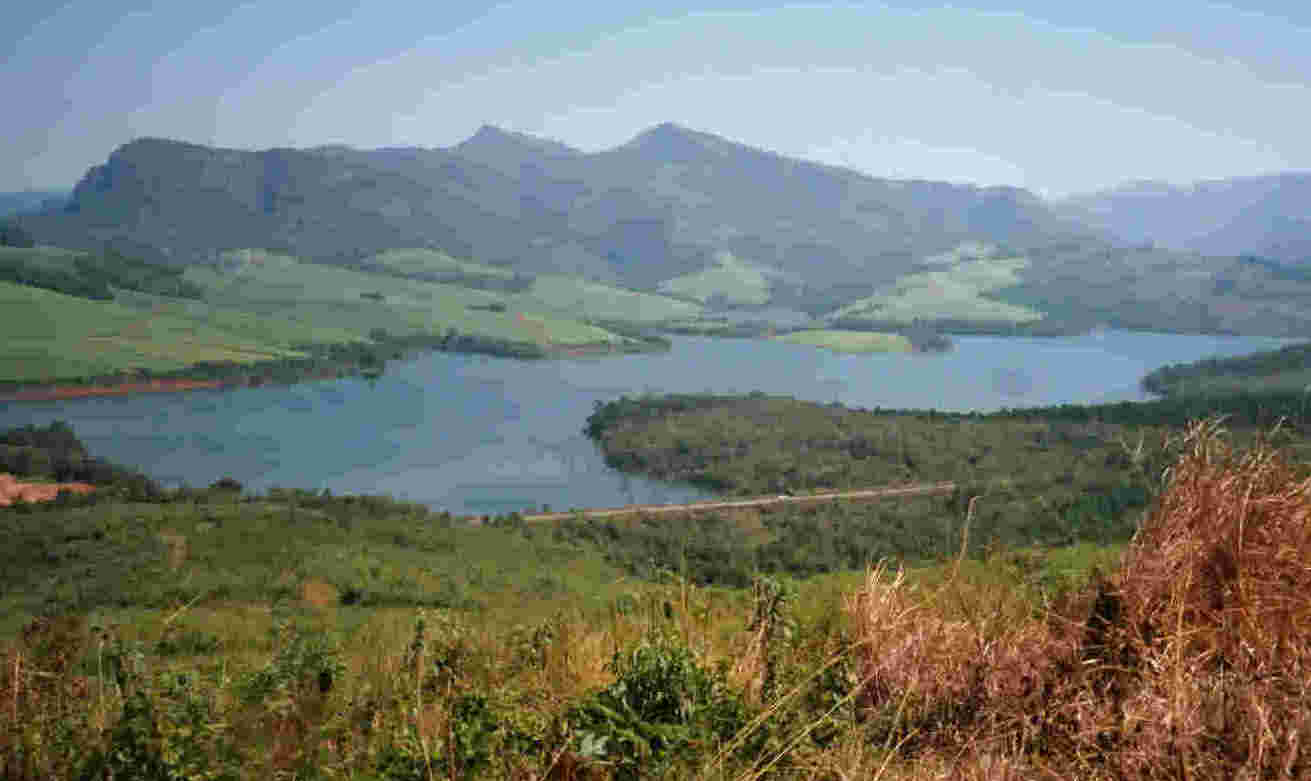by Caspar Hewett
Outline of talk given at the
WORLDwrite event
Raising Horizons to Raise Water on Saturday 7th June 2003
Click Here for pdf version of the text on this page
We live on Earth, The Blue Planet, so called because two thirds of its surface
is covered with water.
So how come there is a lack of access to safe clean water in so many countries?
One reason is, of course, that most of that water is salt water in the oceans
but even that wouldn’t be
a problem if we had real development. In fact in the modern world there is no
good reason for there
to be shortages of water anywhere. Not only is there plenty of water but there
is an inexhaustible
supply. Water cannot get used up - it is recycled, however many times and in
whatever way we use it,
by what we call the hydrological cycle, thus the supply is limitless.
The problem in the developing world is not a lack of water but the lack of
infrastructure and it is this that I want to focus on.
The title of the day, Raising Horizons to Raise Water, is very heartening as it
suggests rejecting the
low horizons that tend to be imposed on the developing world today. I think that
what we should be
aiming for is WATER FOR ALL. Not just enough to drink, but PLENTY for washing,
sewerage and
the many other uses we take for granted in developed countries like Britain including
recreational activities like
swimming.
Coming back to the salt water in oceans - one solution is to remove the salt
from seawater to provide
drinking water. The technology for this is already available in the form of
desalination plants. In fact
because they are rich countries (because of their oil reserves) countries such
as Kuwait and Saudi
Arabia have been able to build desalination plants to provide sources of
drinking water. The only
reason this is not possible for coastal African states, for example, is that
building and running these
plants is expensive. Thus it is an economic problem not a technical or resource
one.
So, why ‘Reflections on policy in Republic of South Africa’? Well, for one thing
I worked in South
Africa last year, but also South Africa makes an interesting case study and
raises some general issues
about water and development.


People using the Mutale river, Republic of South Africa
People in South Africa use water in a number of ways. The Mutale river is in an
underdeveloped
region of South Africa in the North of the country near the border with
Zimbabwe. The river is used
by people of Mutele about 2 kilometres away. They collect drinking water, wash
themselves and
their clothes and their livestock drink from it - and it is not just the drudge
of having to walk to the
river to do these things at issue - simple tasks such as these can be really
dangerous in a country like
South Africa as there are crocodiles in the rivers which quite commonly attack
people. One thing the
women washing clothes do is to put acacia branches in the water between them and
the rest of the
river, not so much to keep the crocodiles away as to create a warning system -
if a crocodile
approaches it moves the branches and makes a noise, giving the women time to run
away.
 Current policy in South Africa will do away with this daily walking to the river
and is being seen by
many as a model for rest of world; The South African government has made a
commitment to
provide 25 litres per day per person to every person in the country in the next
five years. Although
South Africa is well developed this still represents a huge commitment to
providing necessary
infrastructure such as reservoirs and pipelines.
Current policy in South Africa will do away with this daily walking to the river
and is being seen by
many as a model for rest of world; The South African government has made a
commitment to
provide 25 litres per day per person to every person in the country in the next
five years. Although
South Africa is well developed this still represents a huge commitment to
providing necessary
infrastructure such as reservoirs and pipelines.
South Africa does have an advantage over most developing countries for, although
it has only one
natural lake it has a number of large man-made reservoirs throughout the
country, such as that created by the Albasini dam (left), and is building
more. Only this makes piped water viable.
 There is a striking contrast between the region around the Vondo dam (right)
and the village of Mutele,
discussed above. Notice the lush vegetation. There is a huge difference in the
quality of life of the
people in this area. Irrigation schemes have transformed lives enabling people
to move beyond
subsistence farming and grow crops to sell. In contrast to Mutele, for example,
there are lively
markets selling locally grown fruit and vegetables, there is economic life and more
contact with the rest of
country - markets and produce even bring major roads. It is nteresting to note that,
providing water does not just
mean enough to drink, water animals or grow crops, since water in excess of
basic needs can open up
new opportunities - for example brickmaking is a common way of earning money in
South Africa when there is sufficient water.
There is a striking contrast between the region around the Vondo dam (right)
and the village of Mutele,
discussed above. Notice the lush vegetation. There is a huge difference in the
quality of life of the
people in this area. Irrigation schemes have transformed lives enabling people
to move beyond
subsistence farming and grow crops to sell. In contrast to Mutele, for example,
there are lively
markets selling locally grown fruit and vegetables, there is economic life and more
contact with the rest of
country - markets and produce even bring major roads. It is nteresting to note that,
providing water does not just
mean enough to drink, water animals or grow crops, since water in excess of
basic needs can open up
new opportunities - for example brickmaking is a common way of earning money in
South Africa when there is sufficient water.
South Africa is a terrific example of the sort of forward thinking that I would
like to see everywhere,
athough this should be tempered by recognising that we in Britain use something
like 150 litres per
day per person - a far cry from the 25 South Africa are aiming for.
I am uncomfortable with the fact that sustainability dominates discussion around
water today. The South
Africa project I was working on was funded by Department of International
Development (DfiD) and
thus had a focus on sustainable livelihoods. DfiD’s literature on sustainable
livelihoods explicitly
states that there should be a focus on helping people understand the
contribution their livelihoods
make on the environment and promoting sustainability as a long-term objective.
This is a cop out and
clearly puts environment before people. What is usually concluded when working
with this approach
is that the best we can offer developing countries is subsistence agriculture.
This is not acceptable. I
would like to see a move away from the basic needs mentality and instead a real
commitment to development. This means following South Africa's example and going
further by arguing for clean piped water for EVERYONE, EVERYWHERE.

